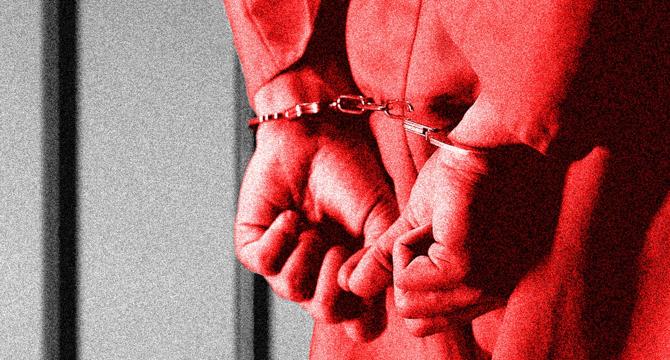Wired
2w
426

Image Credit: Wired
As the Mastermind of Far-Right ‘Active Clubs’ Goes to Prison, His Violent Movement Goes Global
- American neo-Nazi Robert Rundo has been sentenced to federal prison for attacking political opponents at rallies in California in 2017. Along with members of the Rise Above Movement, Rundo was convicted in 2018 of conspiracy to violate the federal Anti-Riot Act for planning and training a series of attacks on political opponents. Rundo co-founded the fight club-cum-street gang in Southern California with fellow extremist Ben Daley during the peak of the alt-right movement.
- Since Rundo’s initial arrest, he helped create an international network of RAM clones called 'Active Clubs.' The clubs are a transnational alliance of far-right fight clubs that closely overlap with skinhead gangs and neofascist political movements in North America, Europe, the Antipodes, and South America. There are now dozens of Active Clubs in countries such as the US, UK, France, Germany, Holland, Scandinavia, Australia and Colombia.
- Seemingly harmless from the outside, Active Clubs are small groups of young men who go on hikes, train in combat sports, weight-lift, and build camaraderie. But their membership often overlaps with other extremist organizations, including Patriot Front and skinhead groups like the Hammerskins. US-based Active Clubs are branching out into political intimidation and violence.
- According to extremism researchers, the Active Club model stands out for its low barrier to entry, emphasis on positive community building to draw new recruits from outside extremist circles, and a ready-made international network. Their ideology leans heavily on young male grievances against a world that supposedly singles them out in favor of people of color and LGBTQ+ youth.
- Rundo co-created the concept of an Active Club in 2021 with far-right German-Russian neo-Nazi Denis Nikitin, who started out as a soccer hooligan before moving into combat sports as a fighter, promoter, and organizer of far-right tournaments. Since then, the neo-Nazi fight clubs have proliferated throughout Western Europe, Australia, and the United States and are currently the preeminent organizing model for far-right streetfighters.
- The Active Club network is seeing expanded breadth and growing significance in street politics. Their members have been involved in political violence in the US and France, have been banned and arrested in Germany, and are a growing concern for UK and Irish law enforcement as the place of their recruiting has skyrocketed following this summer's riots.
- Rundo will likely spend years in prison, but it remains unlikely that federal lockup will change his ideologies. He previously served nearly two years for stabbing a rival gang member in Queens in 2009. While he did radicalize during his stint, starting a small white power gang, Rundo’s forthcoming prison term will mark his first federal term as a certified domestic extremist. Prior to the US election, Rundo urged his supporters to vote for Donald Trump in the hope that the president-elect would pardon him and other extremists who plead guilty to federal crimes.
- Rundo “has not renounced the violent extremist ideology that motivated that conduct,” US prosecutors wrote in their sentencing memo. It’s also likely that Rundo will hold out for help from a friendlier government. Since his initial arrest, Rundo helped mastermind an international network of RAM clones known as “Active Clubs.”
- Along with members of the Azov Movement’s 3rd Assault Battalion who have been integrated into the regular units of Ukraine military intelligence directorate, Nikitin hosted a September conference in Lviv that gathered representatives from extreme right-wing organizations across Europe for a strategy conference. Italian fascist organization Casapound, which Rundo visited in 2018 and views as an exemplar, sent a representative, as did Germany’s openly neo-Nazi party, Dritte Weg.
- Active Clubs have proved effective at dodging legal crackdowns in countries like France, where far-right street violence has a decades-long history despite authorities' attempts to ban and dissolve organized groups. The clubs appear to have carried out acts of violence, including an attack on an asylum center near Nantes last year.
- The Active Club model stands out for its low barrier to entry and emphasis on positive community building. Active Clubs are concerning as their membership often overlaps with other extremist organizations. The clubs appear to have carried out acts of violence in the US and France, have been banned and arrested in Germany, and are a growing concern for UK and Irish law enforcement. The founders of Active Clubs are facing imprisonment, however, the movement continues to grow in the United States, Europe, the Antipodes and South America.
Read Full Article
25 Likes
For uninterrupted reading, download the app